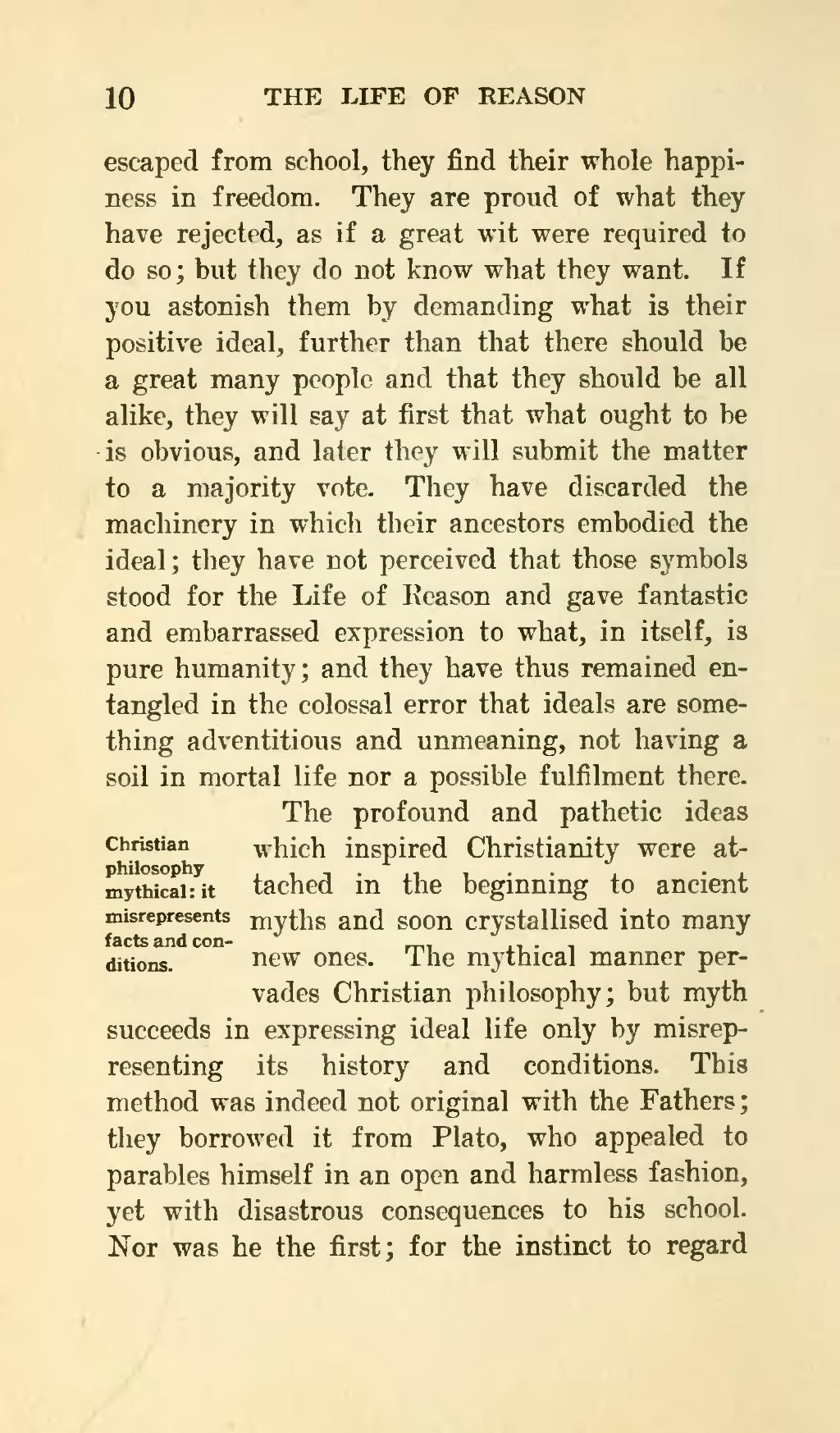escaped from school, they find their whole happiness in freedom. They are proud of what they have rejected, as if a great wit were required to do so; but they do not know what they want. If you astonish them by demanding what is their positive ideal, further than that there should be a great many people and that they should be all alike, they will say at first that what ought to be is obvious, and later they will submit the matter to a majority vote. They have discarded the machinery in which their ancestors embodied the ideal; they have not perceived that those symbols stood for the Life of Reason and gave fantastic and embarrassed expression to what, in itself, is pure humanity; and they have thus remained entangled in the colossal error that ideals are something adventitious and unmeaning, not having a soil in mortal life nor a possible fulfilment there.
The profound and pathetic ideas which inspired Christianity were attached in the beginning to ancient myths and soon crystallised into many new ones. The mythical manner pervades Christian philosophy; but myth succeeds in expressing ideal life only by misrepresenting its history and conditions. This method was indeed not original with the Fathers; they borrowed it from Plato, who appealed to parables himself in an open and harmless fashion, yet with disastrous consequences to his school. Nor was he the first; for the instinct to regard
